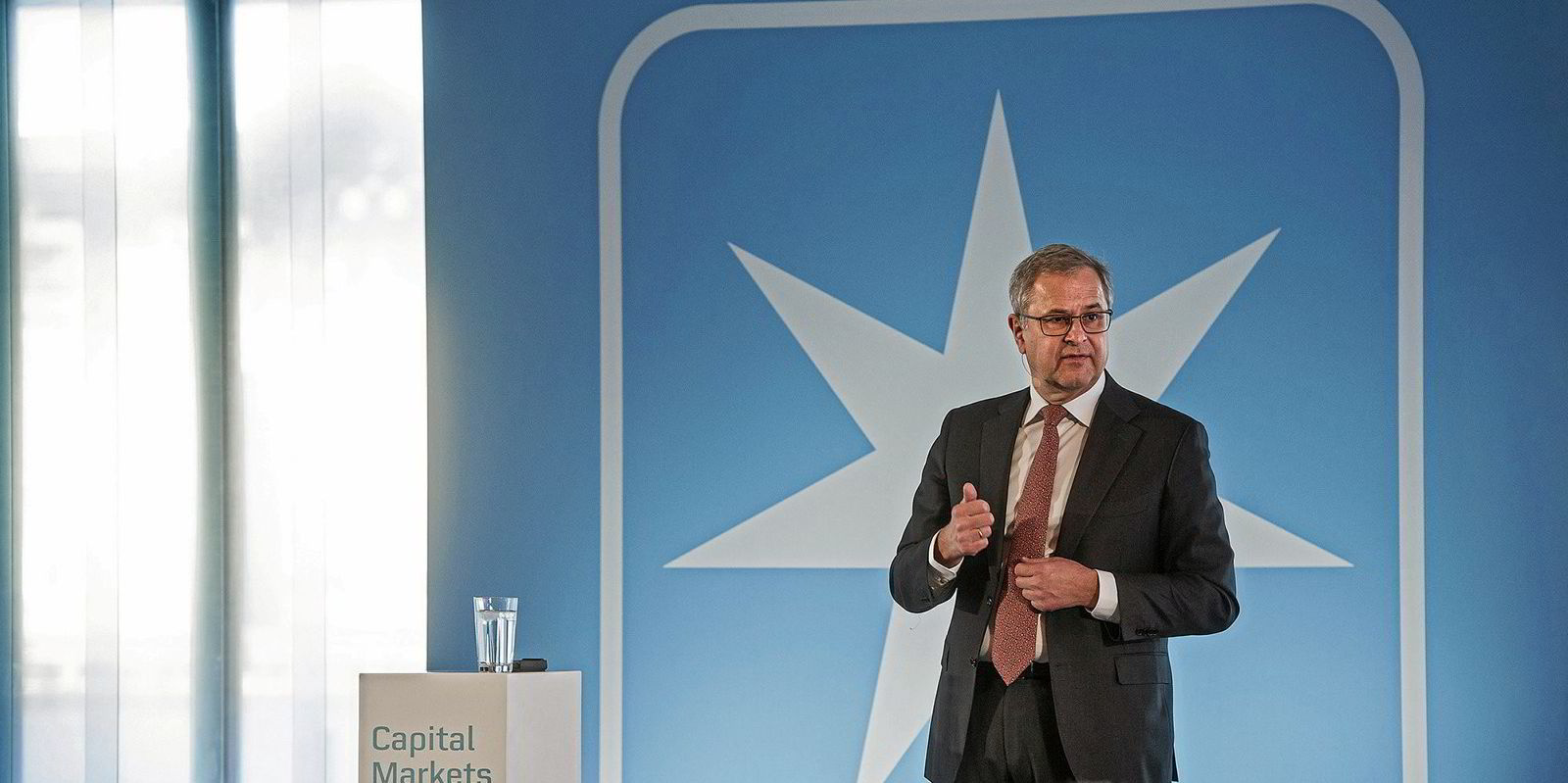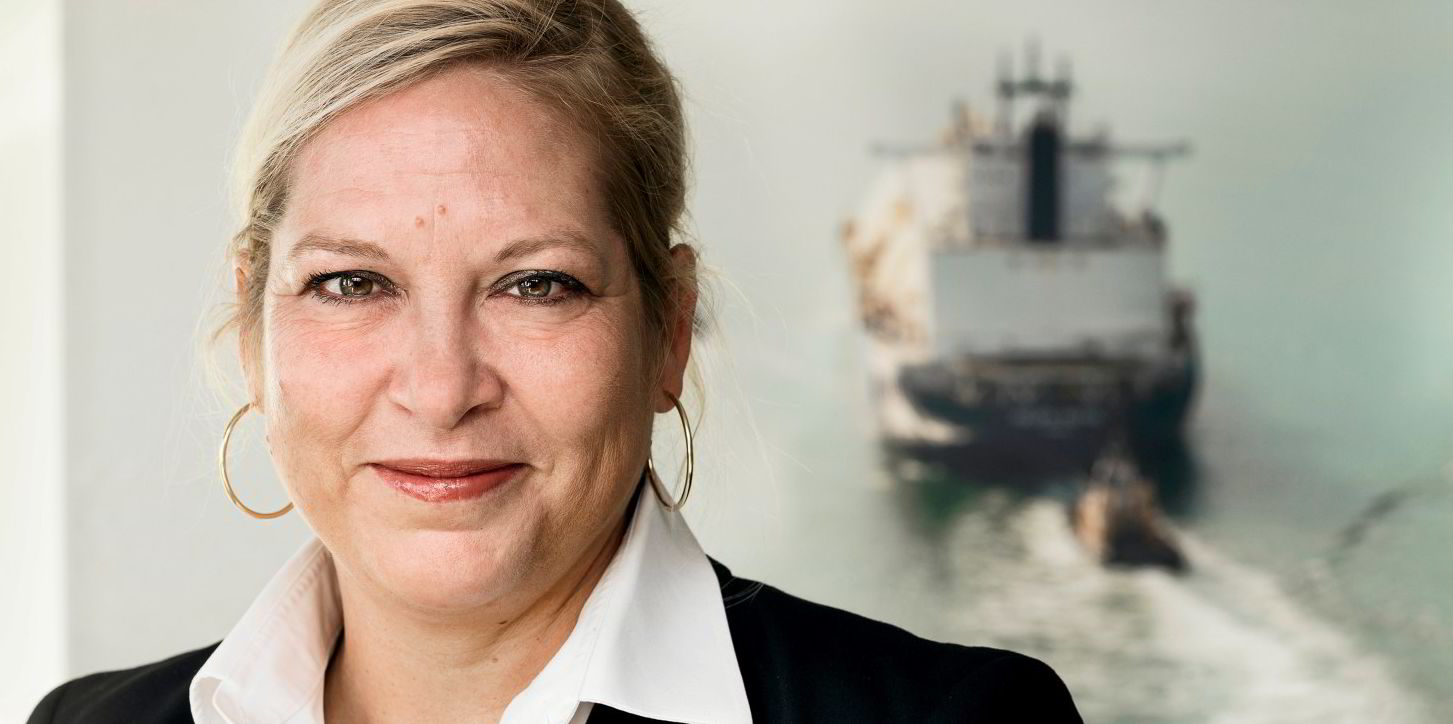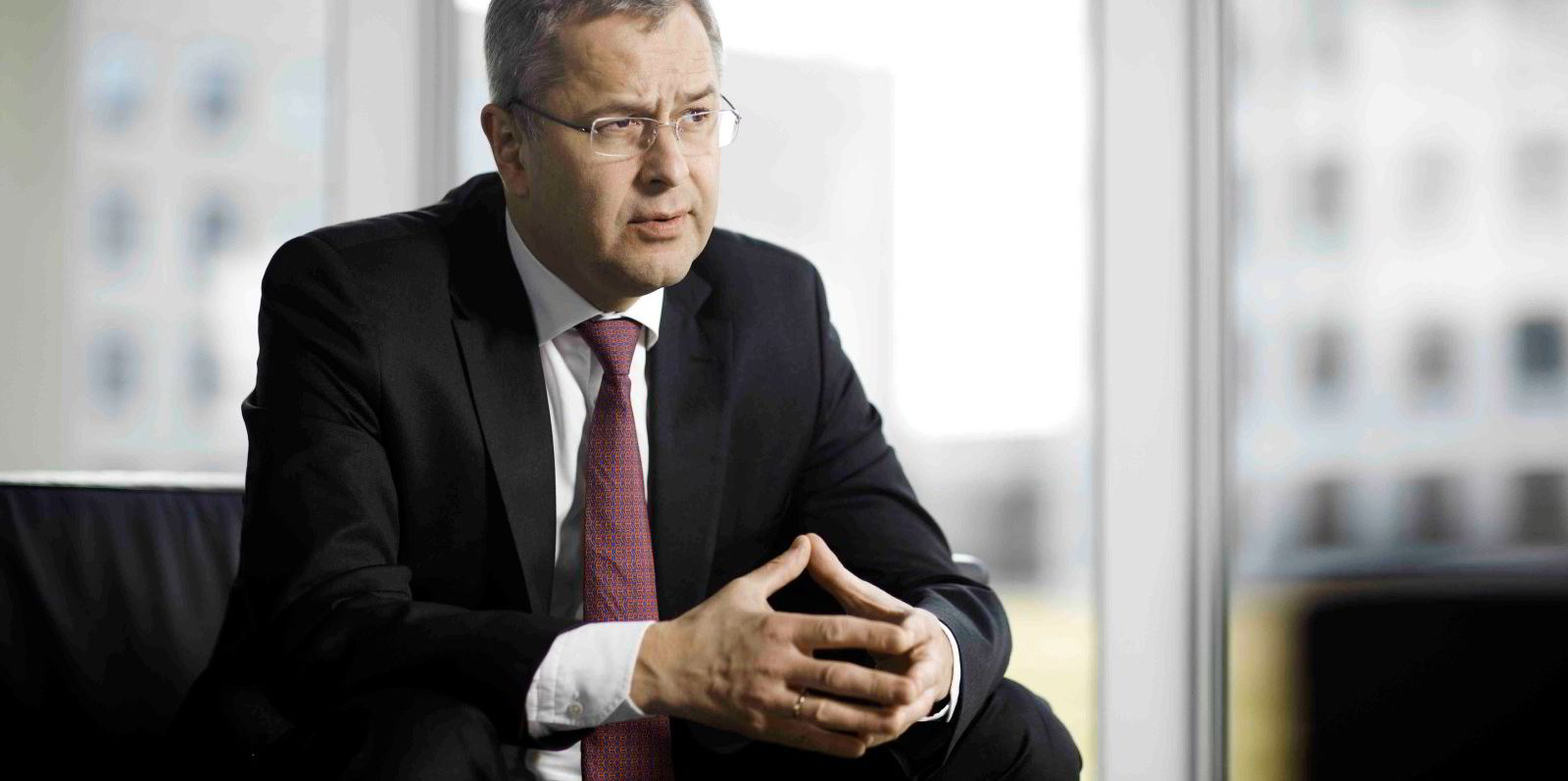Danish container shipping giant AP Moller-Maersk is looking to order its first small containerships that can run on ammonia, methanol or ethanol within three years.
The world’s biggest liner group aims to order a series of baby boxships to operate within a specific region that will allow it to supply the vessels with the alternative fuel it chooses, chief executive Soren Skou told a podcast hosted by the Global Optimism climate change team.
Maersk is undertaking research into new fuels at its Maersk Mc-Kinney Moller Center for Zero Carbon Shipping. Its aim is to have zero-emission ships in its fleet by 2030 to start achieving IMO decarbonisation goals for the shipping industry.
“Three years from now, we expect to order the first series of baby small containerships that we can operate in a defined geographical area. Then we can go out and make supply contracts with people that can provide ships with ammonia or methanol, ethanol, etc and we can fuel the ships,” Skou said.
The operating experience gained from the baby boxship project would help Maersk be “ready to start ordering large ships towards the end of this decade,” he added.
Skou said Maersk’s research still has a long way to go to define which fuel it will use but that it has identified ammonia and alcohol-based fuels as the likely pathway as they are burnt in combustion engines similar to those currently used, and may allow retrofitting of existing ships.
Ammonia and alcohol-based fuels like ethanol, methanol and bio-methane can also be produced from green sources, although they do have drawbacks. Ammonia is highly toxic, and the alcohol types have a low flame point.
Fuel transition
In January, Maersk started putting together a team of 50 employees to spearhead its decarbonisation efforts, led by head of strategy Morten Bo Christiansen.
In 2018, the company launched a vision of having net-zero CO2 emissions from operations by 2050 and carbon-neutral vessels commercially viable by 2030. Late last year it topped a list of 12 liner operators ranked according to their green credentials by Poland's Gliese Foundation.
In November, while presenting the group’s third-quarter 2020 results, Skou said Maersk would not follow the lead set by rival leading container carrier CMA CGM in ordering LNG-fuelled boxships.
“We don’t believe that LNG is going to play a big role for us as a transition fuel. It is still a fossil fuel and we would rather go from what we do today straight to a CO2-neutral fuel,” Skou said.
He added then that the carrier had no plans to build any more of the largest 20,000-teu-plus vessels in the near future, but would order smaller ships as necessary to maintain its fleet capacity at about a current 4m teu.
Skou also told the Global Optimism podcast that Maersk supported and was positive about the IMO’s effort to decarbonise shipping but that he personally was “outraged about the lack of ambition level from some member countries of the IMO”.






